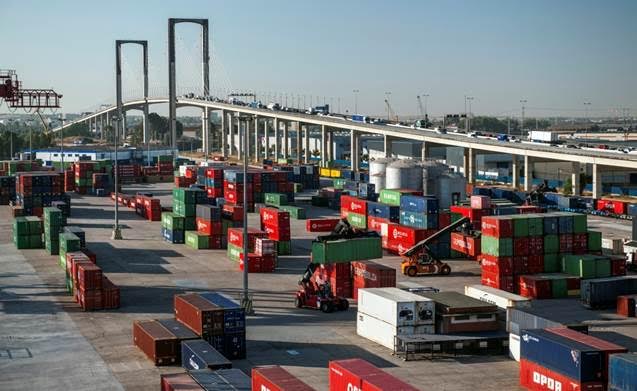German OPDR, as part of the CMA CGM Group, and Spanish Boluda Corporación Marítima (Boluda) successfully started out their cooperation of jointly operating the container terminal in the Port of Seville. In the course of a public tender the joint venture had submitted its application in July 2016 and was announced as the winner by the Port Authority of Seville (APS) last December. The concession to jointly run the container movement in the Port of Seville for the next 30 years became effective on January 1st 2017.

The container terminal in the Port of Seville
It was in July 2016 when Boluda and OPDR – with the contribution of CMA Terminals, a CMA CGM subsidiary dedicated to terminals, and Boluda Terminales Marítimas as part of Boluda Corporación Marítima – convinced the Port Authority with their expertise and receptive plans regarding the strategic direction of the container movement in the Port of Seville, Spain’s only inland seaport.
At the beginning of the year the concession finally became effective: On a total area of about 180.000m², Boluda and OPDR – who form the joint venture Terminales Marítimas del Guadalquivir – now control all facilities related to the handling of containerized goods including the railway terminal Muelle del Centenario. This represents one third of all freight traffic in the Port of Seville.
Unlike the former concession, this new concession also includes the entire infrastructure that is linked to the container movement in order to ensure a more effective management and to optimize and further develop the intermodal logistics solutions in the port. Moreover, the joint venture will enhance the terminal by contributing a new third container gantry crane.
The shipping experts Boluda and OPDR, who are also represented with offices in Seville, thereby underline the significance of the port in the Andalusian capital.
Till Ole Barrelet, Chief Executive Officer of OPDR, stated: “Seville is of great strategic importance for OPDR. This joint venture allows us to offer best products for our client-integrated supply chains. I am very confident that we, together with Boluda, are able to realize all our plans and therefore permanently increase the performance of the port and railway terminal.”
Vicente Boluda, Chairman of Boluda, also stressed Seville’s value for his company by indicating the long term relationship with the port: “The admission of this concession is really important for Boluda due to its great links with Seville, where we have been providing towage services for nearly 30 years and where one of our corporation’s most important offices is located. This new project with OPDR will allow us to remain committed to the growth of this harbor, which is essential for the development of the city and its hinterland.”
For 2016, the figures of the Port of Seville remained stable, reaching about the same very good annual result as in 2015 when over 160.000 TEUs were handled. In terms of container traffic, the Port of Seville therefore is the second largest port in Andalusia and the most important port for strategic connections between the Iberian Peninsula and the Canary Islands.
Boluda Corporación Marítima is presently one of the main groups of global maritime services. Its activity covers the different areas that define the maritime sector, offering a complete service to its customers. In that way, it counts with the division of Boluda Lines (shipping company, consignee, land transport, logistic, management of port terminals, forwarding and storage), Boluda Tankers (supply and transport of combustible), Boluda Towage and Salvage (service of towing in port, offshore ocean going and maritime salvage). Boluda Corporación Maritima is present in all the Spanish littoral, in France, in Italy, in West Africa and in South America.
Source: OPDR